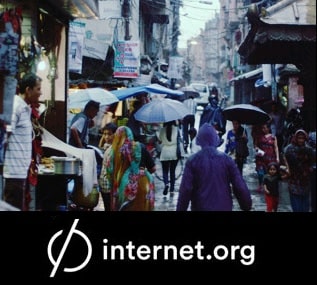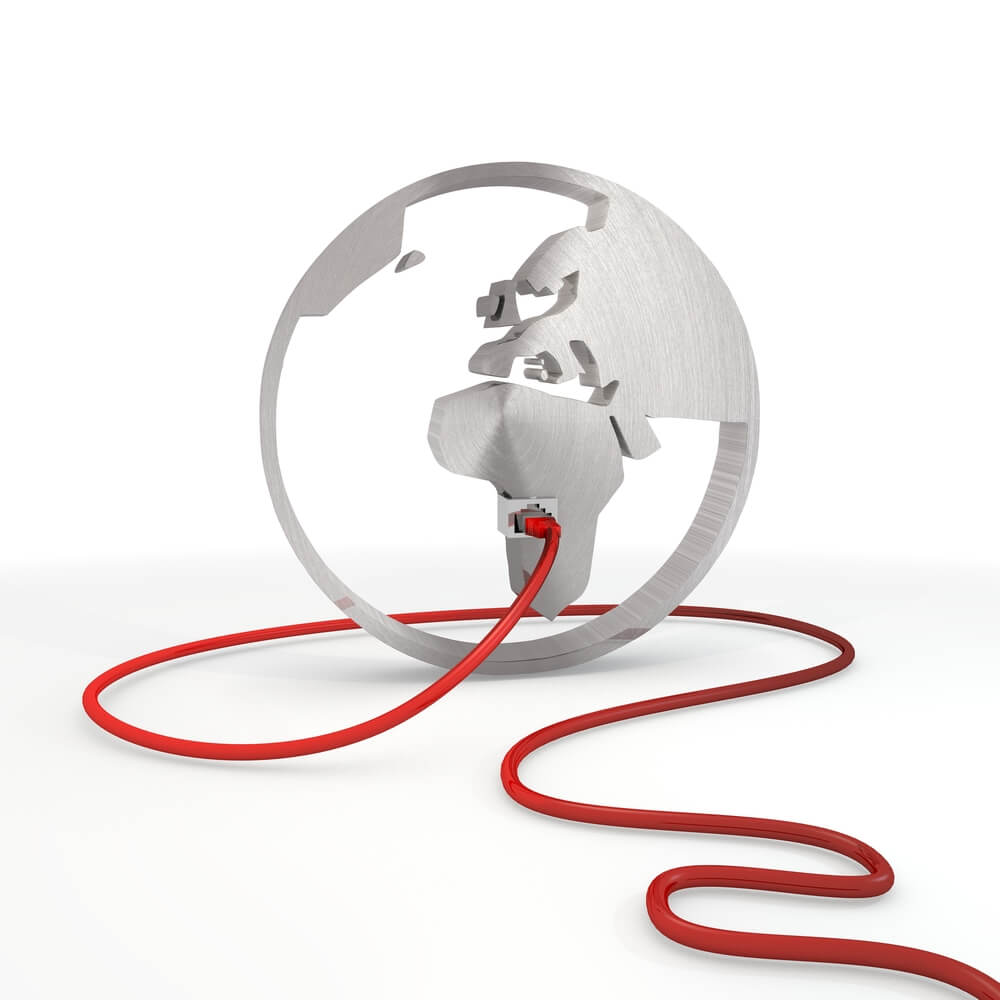Facebook, Ericsson, Mediatech, Nokia, Opera, Qualcomm and Samsung are partners and financiers in the project

Mark Zuckerberg, the founder and CEO of Facebook, announced yesterday the launch of a new global partnership called internet.org whose goal is to make the Internet accessible to another 5 billion people.
"All Facebook did was give all people around the world the power to communicate," Zuckerberg said. "There are huge barriers in developing countries to connecting and joining the knowledge economy. internet.org will bring together global partners who will work to overcome these challenges, including making Internet access available to those who cannot afford it financially."
Today only 2.7 billion people, just over a third of the world's population, can access the Internet. Internet adoption is growing at a rate of less than 9% each year, a relatively slow rate for such an early stage of development. The purpose of internet.org is to make Internet access possible for the two thirds of the world's inhabitants who are not yet connected, and to bring the same opportunity that the third connected to the network has to the rest of the planet's inhabitants.
The founding members of internet.org - Facebook, Ericsson, Mediatech, Nokia, Opera, Qualcomm and Samsung will develop a joint project, share knowledge and motivate industry and governments to turn the world online. These founding companies have a history of working closely with cellular factories and expect them to play a central role in the initiative, which will eventually include non-governmental associations, academic bodies and experts. The internet.org project is inspired by the successful Open Compute Project, a cross-industry initiative that has reduced the cost of cloud computing by making hardware design efficient and innovative.
To achieve these goals of connecting the two thirds of the world that are not yet bought, the project will focus on three challenges in developing countries:
- Making access economically attainable: The partners will work together to develop and adopt technologies that will make mobile connectivity more economical and reduce the costs of transmitting data to people around the world. Potential projects in this area will include, among other things, partnerships for the development of cheap but high-quality smart phones and partnerships that will ensure the expansion of the implementation of the use of Internet access in underdeveloped communities. The mobile operators will play an important role in driving initiatives for the benefit of the entire ecosystem.
- More efficient use of data - the partnership will invest in the development of tools that will dramatically reduce the amount of data required to use most applications and the Internet experience. Potential projects in this area will include developing data compression tools, expanding network capabilities so that it can handle data more efficiently, building efficient data storage systems, and creating an application framework that will reduce data usage.
- Assistance for making businesses accessible to the Internet: The partners will support the development of sustainable business models and services that will make it easier for people to access the Internet. This includes, among other things, testing new models that will align with incentives for cellular operators, device manufacturers, developers and other businesses to provide a more viable access model than has been possible up until now. Other efforts will focus on the localization of services, and working together with operating system vendors and partners to enable the inclusion of more languages on mobile devices.
-

Connecting the Third World to the Internet. Illustration: shutterstock
By reducing the costs and volume of data required for most applications, and facilitating new business models, the internet.org initiative will focus on enabling the additional five billion people on the planet to enter the online world.
Facebook, Ericsson, MediaTech, Nokia, Opera, Qualcomm Samsung and other partners will leverage existing partnerships and look for new ways to collaborate in order to solve these problems.
"For over 100 years, Ericsson has enabled communication for everyone and today, over 6 billion people in the world enjoy access to cellular communication" says Hans Westberg, president and CEO of Ericsson. "We are committed to shaping the networked society - where everyone and everything will be connected in real time; To create the freedom, empowerment and opportunity for the transformation of society. I believe that affordable access to the Internet will improve people's lives and help build a sustainable planet and we are excited to take part in the internet.org initiative."
"As a leading company in the world in the field of mobile solutions for emerging markets, which are at the heart of over 300 million smart consumers within two years, Mediatech supports the internet.org initiative says MK Tsai, chairman of Mediatech.
"Access to the Internet and global social media represents the biggest change since the Industrial Revolution, and we want to include everyone."
"Nokia is deeply passionate about connecting people: to each other and to the world around them," said Nokia President and CEO Stephen Elop. "Over the years, Nokia has connected well with more than a billion people. Our industry is now at an exciting inflection point where Internet connectivity is becoming more affordable and efficient for consumers while still offering them a great user experience. Universal access to the Internet will be the next great industrial revolution."
“Today, more than 300 million people use Opera every month to access the Internet. Tomorrow, we have the opportunity to serve the next 5 billion people connected through mobile devices in the developing world. It's in Opera's DNA to save people time money and data and through internet.org we think we can help advance those goals. "said Lars Boylsen, CEO of the Opera company.
"Mobile communications have helped transform the lives of many people in developing regions where a mobile computing device is often the first and only experience they've ever had," said Paul Jacobs, chairman and CEO of Qualcomm. "Having sold over 1 billion chips, Qualcomm is a market leader, and as such it is committed to the goal of bridging the digital divide. We are delighted to be a part of nternet.org and work with key players in an entire ecosystem to drive this initiative forward.”
"This new initiative has great potential to help accelerate Internet access for all," said JK Shin, CEO and President of the IT and Mobile Communications Division at Samsog. We are focused on delivering high-quality mobile devices to ensure that the next five billion Internet users have a good mobile Internet experience."
At the same time as the announcement, a website was launched last night Internet.org which provides an overview of the project's goals, as well as a complete list of partners. In the coming weeks, it will publish interviews with leaders and technology experts, as well as the latest news about the activities of the Internet.org project.
.

One response
What is interesting is that today in African countries a cell phone is a necessary product for almost every young man and woman - they do absolutely everything with it: watch movies, Facebook, play games. Cell phone is their life.